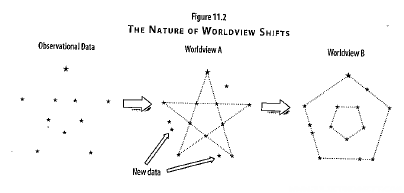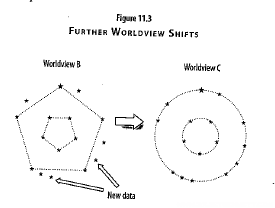Wealth isn’t only socially constructed. Neither is poverty. Are wealth and poverty only about stuff? How about being wealthy or poor in time? Or in spirit? Pleasure? Love? Friendship? Does the pursuit of wealth in purely monetary terms cause us more problems than the benefits it brings?
George Carlin on Stuff to start it off:
[youtube]http://www.youtube.com/watch?v=MvgN5gCuLac[/youtube]
There are many ways to view the world, each built up by a one’s social environment and upbringing. The social construction of childhood:
[youtube]http://www.youtube.com/watch?v=01xYdGsisf8[/youtube]
‘The world’s most primitive people have few possessions, but they are not poor. Poverty is not a certain, small amount of goods, nor is it just a relation between means and ends; above all it is a relation between people. Poverty is a social status.’ [2]
What do you think of this statement? Is poverty only relational, or are there some absolutes in an availability of resources sense?
The intro to The Gods Must Be Crazy demonstrates colossally different worldviews:
[youtube]http://www.youtube.com/watch?v=66pTPWg_wUw[/youtube]
‘We are inclined to think of hunters and gatherers as poor because they don’t have anything; perhaps better to think of them for that reason as free.’[4]
Sidelining the danger of falling into “Noble Savage” idealizations/criticisms (ie recognizing that hunger & gatherer lifestyles have their problems too, and moving on), let us talk briefly about the contrast between common Western lifestyles (40-hour work weeks, sitting on computers) and a couple of alternative lifeways.
‘Hunters and gatherers work less than we do; and, rather than a continuous travail, the food quest is intermittent, leisure abundant, and there is a greater amount of sleep in the daytime per capita per year than in any other condition of society.’[4]
So… what is affluence/wealth?
According to Sahlins, an ‘affluent society is one in which all the people’s material wants are easily satisfied.’
It is interesting to contrast our “Galbraithean” way of life (‘wants are great’ + ‘means are limited’) with the “Zen road to affluence” whereby people can enjoy an ‘unparalleled material plenty – with a low standard of living.’ [1]
Today’s growth/market/consumer-based economy is based on a ‘perpetual disparity’ with ‘unlimited wants’ and ‘insufficient means’. No matter how much “stuff” we accumulate, we always want more. Do you think even the most “wealthy” people in our world today are affluent? How many hours do they work? Are they happy?
Social construction of wealth and happiness: does wealth make us happy?
This order of happiness ‘is not a result to be attained through action, but a fact to be realized through knowledge. The sphere of action is to express it, not to gain it.’ [5] More on happiness: https://julietbennett.com/2011/11/06/life-is-a-game-alan-watts-happiness/
I guess there are many different ways to be in the world, and different paths to wealth, health, love and happiness… kinda like there are many ways of interpreting the dots below…

 [6]
[6]
[2] Ibid. p. 35.
[5] Alan Watts, The Meaning of Happiness: The Quest for Freedom of the Spirit in Modern Psychology and the Wisdom of the East (London: Village Press, 1968). p. iv.
[6] Hiebert, Paul G. (2008). Transforming Worldviews : An Anthropological Understanding of How People Change. Grand Rapids, Mich.: Baker Academic.
No Comments Yet